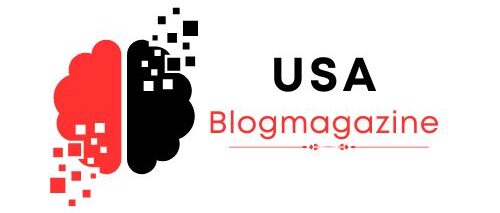Everyone from people to governments is more worried about data breaches and leaks in this digital era. A recent occurrence that has garnered a lot of attention is “TheJavaSea.me Leaks AIO-TLP.” Concerns over data security, user privacy, and the incident’s wider ramifications have been voiced. Please tell me what TheJavaSea.me is and how the AIO-TLP leaks work. While discussing the possible consequences of such breaches, this article dives into these topics, offering a thorough summary.
What is TheJavaSea.me?
A Platform for Data and Information Sharing
One popular website, TheJavaSea.me Leaks AIO-TLP, has become a meeting place for many different kinds of information and data. It has a reputation for housing sensitive information, which includes both technical resources and data that some may find dubious, within specific internet communities. While it could be a great resource for some people looking for certain kinds of information, its role in helping leaked material spread has made it a contentious platform.
How Does It Operate?
Users can post, download, and discuss a variety of files on the platform, just as on other data-sharing platforms. Its allure frequently stems from the fact that it grants access to resources that are elusive in other places. It has come under fire, nevertheless, due to lax monitoring and content that could violate security or privacy regulations. One of the more notable events to arise from this setting is the JavaSea.me AIO-TLP leaks.
Understanding AIO-TLP Leaks
What Does AIO-TLP Stand For?
AIO-TLP is an acronym for “All-In-One Threat Leak Protocol.” Typically, this kind of data leak comprises a wide range of information that has been collected from multiple sources and then made public in one large dump. Depending on the specifics of the breach, the data may contain highly sensitive information such as login credentials, email addresses, and even more extensive personal documents.
Why Are AIO-TLP Leaks Concerning?
Because they sometimes contain extensive data that can be utilized in many ways, AIO-TLP leaks are especially worrisome. The privacy of the affected individuals or organizations is greatly compromised when such material is disclosed. This information is vulnerable to identity theft, account takeovers, and financial fraud if it falls into the wrong hands. There is a very significant risk of harm due to the variety of data involved.
The Scope of TheJavaSea.me Leaks
What Data Was Compromised?
Plenty of people have spoken about the particulars of the TheJavaSea.me dumps concerning AIO-TLP data on internet forums and groups. The breaches allegedly comprised a sizable database that contained login credentials, email addresses, and potentially other sensitive information. Anyone from infrequent internet users to those who are very careful about their personal information could be impacted by the extent of the breach.
How Was the Data Obtained?
As is typical with these kinds of leaks, the exact means of obtaining the data are unclear. Nevertheless, it is believed that the data was either compiled from multiple breaches and released at once, or that it was acquired through social engineering tactics such as phishing. This technique expands the reach and the impact of the leak by collecting data from numerous sources and releasing it all at once.
Implications of the Leak for Users
Privacy Risks and Identity Theft
Concerns about identity theft are among the first to arise in light of the AIO-TLP disclosures. Cybercriminals can use stolen information to open online accounts in someone else’s identity, apply for credit in that person’s name, or even impersonate that person altogether. Unauthorized transactions and sensitive personal information are among the possible consequences for users impacted by the disclosure.
Cybersecurity Threats to Businesses
These breaches can have far-reaching consequences for companies. The company might be hit hard by data breaches if the stolen information included employee credentials, which may give hackers access to company networks. Because of the potential for huge financial losses and reputational harm, this sort of exposure is especially worrisome for businesses that deal with sensitive consumer data.
The Legal and Ethical Questions
Data Responsibility and Accountability
Concerns over data accountability and responsibility have been prompted by theJavaSea.me leaks. When something as huge as a data breach happens, who is responsible for fixing it? Although the website is hosting the compromised data, the original data proprietors may also be held responsible for the data’s lack of sufficient security. In a world where information is continuously migrating across digital platforms, this problem emphasizes the complexity of ensuring data security.
Legal Consequences for Platform Operators
Running a platform that stores compromised information puts you at danger of legal action. In an effort to stop the further transmission of sensitive information, governments or impacted parties may take legal action against websites like TheJavaSea.me. There will be discussions on the need of data security vs the right to free speech if authorities try to completely shut down such sites or demand the removal of certain content.
Protecting Yourself from Data Leaks
Strengthening Personal Online Security
It is critical for individuals to enhance their personal online security in light of instances such as the TheJavaSea.me Leaks AIO-TLP disclosures. Some examples of this behavior include being wary of giving out personal information online, using strong, unique passwords for each account, and using two-factor authentication (2FA). You can lessen the likelihood of being impacted by these leaks by following these actions.
The Role of Encryption and VPNs
Users can further protect themselves online by utilizing Virtual Private Networks (VPNs) and encryption. Even if data is intercepted, it will be difficult to decipher without the correct decryption key, thanks to encryption. However, virtual private networks (VPNs) hide a user’s IP address, making it harder for hackers to monitor their online movements and steal their information.
The Responsibility of Organizations
Implementing Stronger Data Protection Measures
Data breaches like the one at TheJavaSea.me Leaks AIO-TLP highlight the need for strong security protocols in all types of organizations. If businesses are serious about protecting their customers’ personal information, they will update their security processes often, perform audits, and purchase cutting-edge cybersecurity solutions. Equally important is providing staff with training on how to identify phishing and other security risks.
Responding to Data Breaches
A prompt and open response is crucial in the event of a data breach. Companies should inform impacted customers right away, teach them how to protect their accounts, and collaborate with cybersecurity professionals to fix any flaws. This method lessens the impact of the breach while restoring trust.
Conclusion
TheJavaSea.me Leaks AIO-TLP statistics highlight the enormous difficulties that people and businesses encounter in the modern era of technology. These occurrences emphasize the significance of being vigilant and taking proactive security measures, due to the risks of identity theft and the complexity of data stewardship. Data protection and awareness has never been more important, especially considering platforms like TheJavaSea.me Leaks AIO-TLP that are still operating in a morally ambiguous space. Navigating this complicated terrain requires an understanding of the dangers and the need to take precautions.
FAQs
What is TheJavaSea.me known for?
Technical resources and, more contentiously, leaked material are among the many kinds of data hosted on theJavaSea.me website.
What is an AIO-TLP leak?
All-In-One Threat Leak Protocol, or TheJavaSea.me Leaks AIO-TLP, describes data breaches that include numerous sources of sensitive information.
How can I protect myself from data leaks?
To better secure your online information, it is recommended to use strong passwords, enable two-factor authentication, and make use of encryption and virtual private networks (VPNs).
What are the risks of data leaks?
Businesses and individuals may suffer monetary losses as a result of identity theft, unauthorized account access, and other data leak-related issues.
What should organizations do after a data breach?
In order to remedy vulnerabilities, organizations should quickly notify affected users, offer security guidance, and work with cybersecurity specialists.

